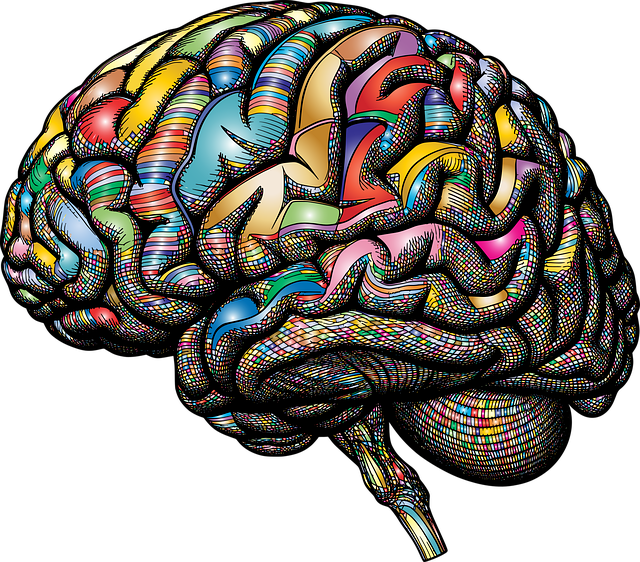Englewood Eating Disorders Therapy offers a holistic approach to mental wellness, focusing on more than just eating disorder treatment. Their comprehensive programs include burnout prevention for healthcare providers, crisis intervention, and self-esteem workshops, combining evidence-based therapies with personalized care plans. Evaluating their success involves both quantitative methods like statistical analysis of progress metrics and qualitative approaches such as interviews and case studies. Through regular check-ins and open communication, therapists gather feedback from clients while tracking changes in mental health status using risk assessment tools. This integrated evaluation process informs tailored interventions, ensuring the program adapts to individual client needs and fosters effective recovery.
At Englewood Eating Disorders Therapy, mental wellness programs are meticulously designed to foster recovery. This article explores effective evaluation methods used to assess the success of these initiatives, focusing on client outcomes and feedback. We delve into key strategies that not only measure program effectiveness but also drive continuous improvement. By examining data from evaluations, Englewood Eating Disorders Therapy enhances services, ensuring tailored support for every individual on their journey towards mental wellness.
- Understanding Mental Wellness Programs at Englewood Eating Disorders Therapy
- Key Evaluation Methods for Measuring Program Effectiveness
- Assessing Client Outcomes and Feedback
- Continuous Improvement: Using Evaluation Data to Enhance Services
Understanding Mental Wellness Programs at Englewood Eating Disorders Therapy

At Englewood Eating Disorders Therapy, our Mental Wellness Programs are designed with a holistic approach to support individuals struggling with eating disorders and related mental health challenges. We recognize that mental wellness is a multifaceted concept encompassing not just the absence of disorder but also overall emotional, psychological, and social well-being. Our programs aim to empower clients by providing them with effective tools and strategies for managing stress, improving self-esteem, and fostering healthy relationships.
Englewood Eating Disorders Therapy offers various services tailored to meet individual needs. These include Burnout Prevention Strategies for Healthcare Providers, Crisis Intervention Guidance, and Self-Esteem Improvement workshops. By combining evidence-based therapies, group support sessions, and personalized care plans, we strive to create a nurturing environment where individuals can begin their journey towards recovery. Our dedicated team of professionals is committed to delivering comprehensive mental wellness program evaluation methods that ensure ongoing progress and positive outcomes for every client.
Key Evaluation Methods for Measuring Program Effectiveness

When evaluating the effectiveness of a mental wellness program like Englewood Eating Disorders Therapy, quantitative and qualitative methods play equally important roles. Quantitative techniques involve statistical analysis of data collected through surveys, tests, and metrics tracking participant progress over time. These methods help identify trends, measure improvements, and demonstrate the program’s overall impact on various mental health outcomes. For instance, assessing changes in scores on standardized depression or anxiety scales can provide concrete evidence of the therapy’s efficacy.
Qualitative approaches, such as interviews, focus groups, and case studies, offer deeper insights into participants’ experiences and perceptions. These methods explore individual stories, emotional journeys, and the program’s influence on their lives. By combining quantitative data with rich qualitative narratives, mental wellness programs like Englewood Eating Disorders Therapy can gain a comprehensive understanding of what works best for different individuals, inform tailored interventions, and enhance overall Mental Health Awareness. Additionally, these evaluation strategies may uncover areas where burnout prevention strategies need to be integrated or Communication Strategies enhanced to better support participants’ recovery.
Assessing Client Outcomes and Feedback

Evaluating client outcomes is a critical aspect of mental wellness program assessment, offering valuable insights into the effectiveness of therapy and support services. At Englewood Eating Disorders Therapy, we employ various methods to gauge progress and gather feedback from individuals undergoing treatment. This involves regular check-ins where therapists discuss symptoms, goals, and any challenges faced during the recovery journey. By fostering open communication, we encourage clients to reflect on their experiences, providing qualitative data that enriches our understanding of treatment outcomes.
Quantitative measures, such as risk assessment tools, are also utilized to track changes in mental health status, particularly focusing on self-care routine development and self-esteem improvement. These assessments help identify areas of concern or progress, allowing professionals to tailor interventions accordingly. The integration of client feedback ensures that the program aligns with their evolving needs, fostering a more engaging and successful recovery process tailored specifically for each individual’s unique circumstances.
Continuous Improvement: Using Evaluation Data to Enhance Services

Evaluation data plays a pivotal role in driving continuous improvement within mental wellness programs like those offered at Englewood Eating Disorders Therapy. By systematically assessing the impact and effectiveness of various interventions, therapists and program developers can identify areas for enhancement and tailor services to better meet the diverse needs of clients. This iterative process involves not only measuring outcomes but also gathering qualitative feedback from participants to gain deeper insights into their experiences.
For instance, at Englewood Eating Disorders Therapy, continuous improvement has been fostered through the integration of Self-Awareness Exercises, which promote introspection and reflection among individuals in recovery. Similarly, Community Outreach Program Implementation strategies have been refined based on evaluation data, ensuring that services remain relevant and accessible to those who need them most. Furthermore, the development of Mental Wellness Coaching Programs is guided by ongoing assessments, allowing for personalized interventions and fostering a culture of holistic support within the community.
The evaluation of mental wellness programs, such as those offered by Englewood Eating Disorders Therapy, is a vital process that ensures the effectiveness and continuous improvement of services. By employing key assessment methods, including client outcomes analysis and feedback mechanisms, we can gain valuable insights into the success of these programs. This data-driven approach enables organizations like Englewood to make informed decisions, adapt their strategies, and ultimately enhance the overall well-being of clients, fostering a healthier and more supportive environment. Through rigorous evaluation, mental health initiatives can evolve, becoming more tailored and responsive to individual needs.














